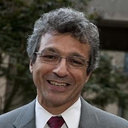No deterioration of cognitive performance in an aggressive unilateral and bilateral antidepressant rTMS add-on trial.
Märksõnad
Abstraktne
BACKGROUND
Cognitive functions were assessed before and following a course of repetitive transcranial magnetic stimulation (rTMS) in patients with depression participating in a sham-controlled, randomized trial of rTMS as adjunct to antidepressant treatment.
METHODS
Forty-one medicated inpatients with a DSM-IV diagnosis of a depressive episode were consecutively randomly assigned to 1 of 3 groups comparing 2 active rTMS conditions with sham stimulation. The rTMS was applied either at high frequency over the left dorsolateral-prefrontal cortex (DLPFC) (10 sessions x 10 trains x 10 seconds 20 Hz at 100% motor threshold [MT], 90-second intertrain interval) or in a combined high- and low-frequency manner to the left and right DLPFC, respectively (10 sessions x 1 train x 10 minutes at 120% MT). Thirty-eight patients completed a neuropsychological test battery at baseline and following day 14. The cognitive assessment focused on motor skills, attention, executive functions, learning, and memory. Data were collected from November 1999 to August 2002.
RESULTS
Active treatment groups did not differ with respect to assessed cognitive measures and thus were pooled. A comparison of short-term changes (baseline-day 14) in neuropsychological performance revealed a more favorable time course of the actively treated patients for encoding in the verbal memory test compared with the sham-stimulated patients.
CONCLUSIONS
Unilateral rTMS as well as bilateral combined rTMS revealed no detrimental effects on cognition, as compared with the sham group. Moreover, neither the add-on design nor the used aggressive parameters had a negative impact on cognitive measures in comparison with sham. Repetitive transcranial magnetic stimulation might have mild beneficial cognitive effects partly independent of its antidepressant efficacy.


